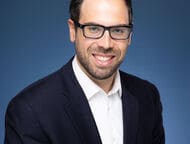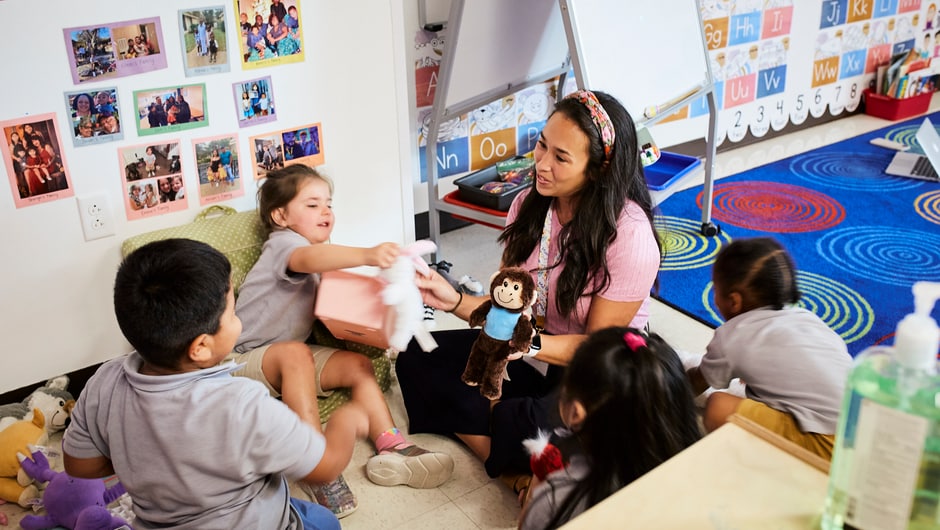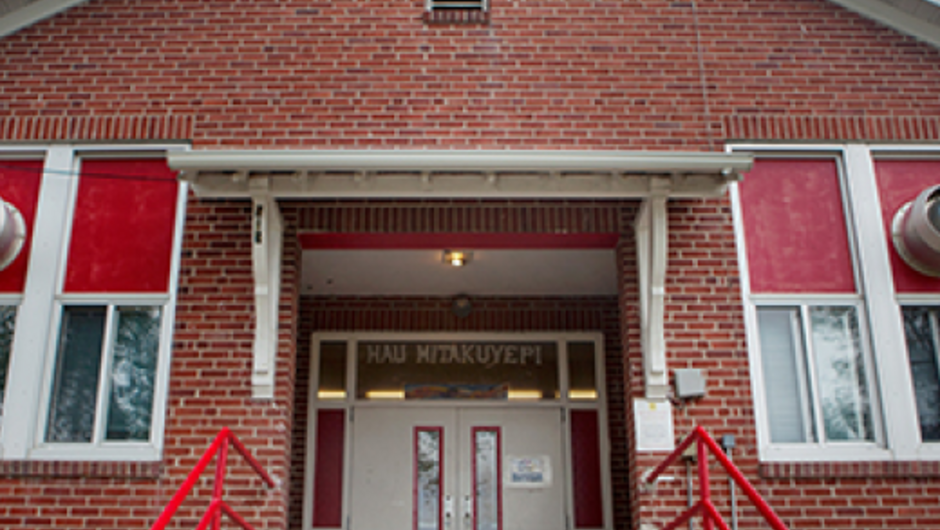On Black Representation in the Educator Workforce
Four Indianapolis alumni discuss the need for increased diversity and Black representation in our schools—and how they’re working to address the issue provided their own experiences and professional trajectories. #BlackHistoryMonth
Today, the K-12 public student population in the U.S. is 50% students of color—but the number of teachers of color across the country sits at 20%, and school leaders of color at only 15%.
These numbers matter because research has pointed to academic gains, greater social-emotional development, and improved social mobility among the many benefits to students having teachers of color. Additionally, “a lack of diversity creates an educational system that’s increasingly separate and unequal,” shares Darius Sawyers (Indy ’13), Principal of Paramount Englewood, a grades 5-8 school opening this fall. “Diversity in the education system is a concern, not only for students of color but all students. Students…need to see teachers from other walks of life. This exposure allows citizens to take steps towards acceptance and unity.”
In honor of Black History Month, we asked four Indianapolis alumni—Rick Anderson (Memphis ’11, Founder and Head of School, Allegiant Prep Academy), Jordan Johnson (Indy ’14, Manager of School Support, The Mind Trust), Ashanti Murdock (Indy ’12, Director of Talent Recruitment, TFA Indy), and Darius Sawyers (Indy ’13, Principal, Paramount Englewood)—to share reflections and insights on Black representation and diversity (and the lack thereof) in schools, and to speak to the work they’re currently doing alongside our community to address this systemic issue.
What do you think are some of the reasons why there’s a lack of diversity in our educator workforce?
Jordan: In my experience, I found that many African-American college students are hesitant to start a teaching career because of financial concerns. Many people feel that the rewards of teaching just aren’t enough to justify the low pay. Indiana is currently working to increase teacher pay with tax credits, appreciation grants, and creating other avenues. When I was teaching, this still wasn’t enough. I loved teaching because it had great rewards and I left the classroom because those rewards were not paying the bills.
Rick: The reason for the lack of diversity in our educator workforce is multifaceted…One reason is what society defines as success. When I graduated from college, I was fortunate to land a job with a Fortune 500 company that afforded me the opportunity to make good money, travel, and be a part of a company pension. My friends and family were so proud of me for living the "American Dream" and working for a prestigious corporation. When I would go to networking events people would always celebrate the fact that I was a "black man" defying the odds and on my way to being rich. In 2011, I decided to leave corporate America and teach in Memphis, TN as a corps member. As I was making this decision, I reached out to family, friends, and mentors that I respected to share the exciting news. The vast majority of them responded like they had seen a ghost. My own mother warned me that teaching is a challenge that presents more risk than reward.
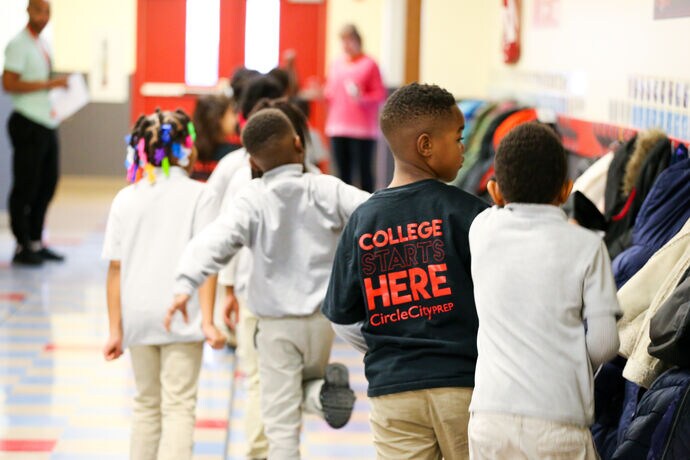
Did you have Black educators during your K-12 school experience? How did their presence, or absence, impact you personally and/or professionally?
Rick: Growing up, I attended private and public schools. The one common denominator was that neither had many Black male educators. In K-12, I had one Black teacher (seven grade social studies) and one Black administrator (high school dean of students). Though there was a void in school of Black representation, my mother worked extremely hard to sign me up for programs at church and in the community to rub shoulders with men of color who helped positively shape what I thought it meant to be a young Black man.
Jordan: I attended private school from Pre-K to 7th grade. My first Black teacher was a kindergarten teacher, and I was very excited to see her everyday because she made up one-third of the Black population at the school (my sister and I were the other two). In public school, I had two Black teachers in the 10th grade. They were more tuned in to who I was. They had an understanding that my non-Black teachers didn’t have. It was easier to speak to them about any issues at home and the isolation I felt in a township school. They never accused me of making excuses, nor did they lower the bar for my academic performance. Having those two teachers there during a critical testing year gave me more academic confidence as one of the few Black students at my high school.
Darius: As a proud product of Indianapolis Public Schools, I came in constant contact with Black teachers, coaches, and mentors. Their presence left me reflecting on what my ancestors have sacrificed throughout history. These educators propelled me to never forget the price which was paid for me to receive a high quality education. Instantly, I became infused with pride, which increased my academic and extra-curricular work ethic. I wanted to ensure my presence paid respect to their legacy. This mindset is the fuel that propels me to ensure a student’s zip code does not predict their educational attainment.
Ashanti: Growing up I didn’t have a teacher of color until I got to college. For me, this lack of representation furthered my decision to join TFA.
What is your current role, and how does your racial identity play a role in your work?
Rick: I currently serve as the Founder and Head of School of Allegiant Prep Academy, a college prep elementary school in Haughville. My racial identity directly plays into why I decided to start with K-1 vs. older grades. The lack of diversity in our educator workforce (specifically men of color) is even lower when you look at lower elementary vs. upper grades. I do not have empirical evidence to back this claim but I spent an entire year visiting north of 50+ schools across the country and can count on one hand how many men of color I saw in K-5 classrooms. I seek to serve as an example that will inspire other men of color to come roll up their sleeves and seriously consider leading from the classroom in an elementary setting.
Ashanti: As I was preparing for graduation it became clear to me that I wanted to do something greater than myself – something that would allow future generations to live a life of choice. For me, that meant teaching in our classrooms. I felt it was my responsibility to make sure students from marginalized communities realized their dreams could become their reality through the power of education.
Throughout my time in the K-12 setting, seeing the lack of representation further fueled my interest in ensuring we have teachers, leaders, and people working in our schools who truly reflect our communities. This ultimately led me to talent work. Our kids deserve people who are ready, committed, and deeply believe in their potential. In my role, it is my hope that we work every day to establish teams worthy of our students.
Darius: Currently, I serve as the Principal of Paramount Englewood. Being a Black school leader in the urban core has showed me the importance of advocacy and representation. Students need to see mentors who share their background but who also can expose them to new experiences. Being a leader who is grounded in my identity ensures that I can show students my authentic self, while seeking experiences to expand their horizon.
Jordan: I currently work at The Mind Trust as the Manager of School Support. Racial identity plays a role in my job as the first point of contact for the schools. It is important to operate through an identity lens because I am always thinking about the students who look like me that attend the schools. Those students deserve knowledgeable, well-trained, and organized school leaders.
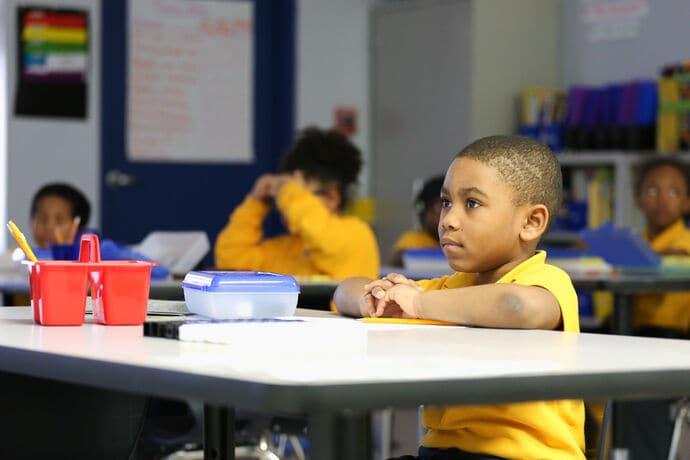
What is a mainstream narrative about Black culture that is misleading or misinformed that negatively impacts student outcomes?
Jordan: The misleading narrative about Black culture that negatively impacts student outcomes is the idea that Black people are victims. In many cases Black families are shown as victims of their circumstance until a white savior comes along to save them. I can see it in how schools advertise with poor Black children and white teachers who are doing good in the community. This idea makes a lot of white teachers see themselves as saviors and lowers their expectations for what their students can achieve.
Darius: The narrative in the media concerning Black student motivation is misleading because I go to work every day and see students with bright futures. I see students who care about their peers, who are inquisitive about the world around them, and who show a remarkable amount of determination. I see students who do not settle for average results and continually exceed academic and behavioral expectations.
Rick: That being a male of color alone will make you a great teacher and allow you to have instant investment with students on day one. The profession of teaching is really hard, there is no way around the many different things one must do well to be an effective educator. I have seen in some instances where individuals have a mindset of "I am Black so I will automatically relate and students will listen to me.” A similar dynamic can happen sometime with young athletes making the transition from college to the pros. In college, an athlete may just be stronger, faster, and more athletic than everyone else. If they do not work to develop other aspects of their game, then they may find out that they are not as effective on talent alone on the next level.
What actions can individuals and groups (both Black and non-Black) take to be allies for racial equity in our schools and communities?
Darius: In order to be allies for racial equity, one needs to have a growth mindset. This is essential to ensuring when one meets a foreign situation, they do not shy away from the discomfort. Instead the ally stands in the discomfort in order to grow and inform their mindset.
Rick: Be vulnerable and honest with one another on the progress and perils of being a male of color in education.
Jordan: I think people who see themselves as allies need to start speaking up. In particular, advocating for Black voices at certain tables. True allies know that they can’t speak for communities but they can advocate for the inclusion of more voices. When more Black people are able to add voice to their schools and communities they should make sure that they are mindful of their decisions to be inclusive of individuals who are in multiple communities. I would also like to see more teacher prep organizations teach aspiring educators that they are to be partners and not superheroes in the communities they work in.
Ashanti: I think it starts with understanding yourself and your own identity. You have to do the self-work regardless of whether you share your students’ identity or not—understanding the perspectives you’re bringing and elevating the perspectives of others different than yours is an important first step to being an ally.
Sign up to receive articles like this in your inbox!
Thanks for signing up!
Content is loading...



